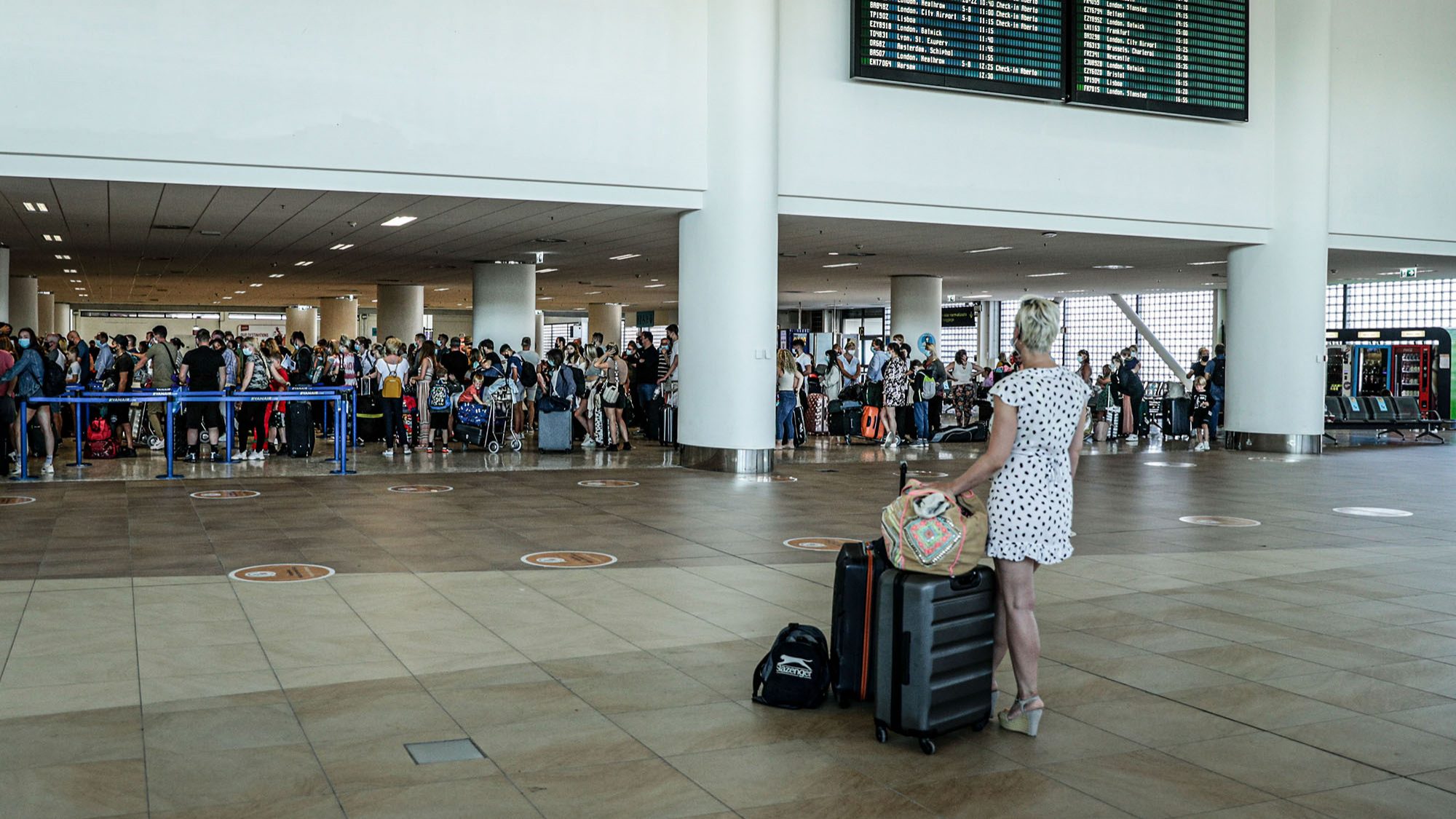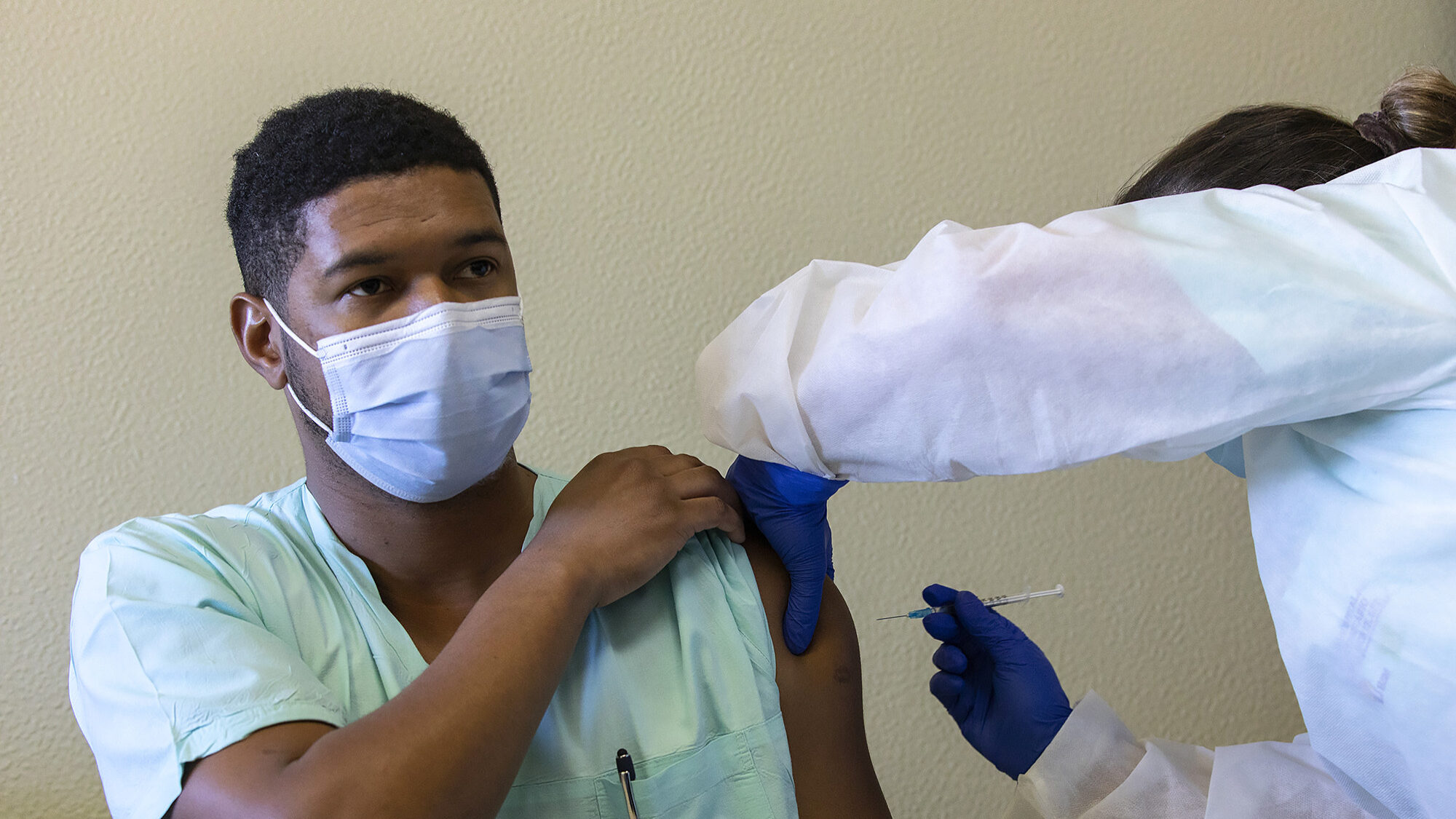Mask use mandatory in higher education in academic year 2021-2022
Despite the high vaccination rate seen in Portugal, the use of masks will remain mandatory in higher education institutions and scientific institutions during this academic year.
The use of masks is mandatory in Portugal’s higher education institutions and scientific institutions for teaching and non-teaching activities in the academic year 2021-2022, according to the Ministry of Science, Technology and Higher Education (MCTES).
The requirement to wear a mask also covers common spaces of student residences, libraries and spaces for scientific activities, and is intended for students, teachers, non-teaching staff, researchers and other higher education employees, says a MCTES document that Lusa has seen, with guidelines for the start of the new school year in “adequate conditions of safety and public health” against the Covid-19 pandemic.
The proper reuse of masks “according to the manufacturer’s instructions, in health and environmental terms” is another of the guidelines contained in the document.
Recalling that the context in which the new academic year begins is different from that of the previous year, since the risks of infection with the novel coronavirus that causes Covid-19 is “mitigated” by the “high fraction of the population already vaccinated, including young adults”, the document also recommends the precautionary sanitisation of hands with a disinfectant solution at the entrance and exit of establishments, rooms and common spaces.
The sanitising of all spaces, respecting the norms and guidelines of the Directorate-General of Health (DGS), guaranteeing the supply of cleaning material and products for the appropriate procedures of disinfection and cleaning, are also mentioned.
The availability of information on the correct way to wash and sanitise hands, respiratory etiquette and distancing are other recommendations, along with the definition and/or maintenance of circuits for people entering and leaving the facilities, in order to minimise gatherings, and the continuation of frequent air renewal in all enclosed spaces, in accordance with DGS standards.
Other recommendations included in a long list of MCTES recommendations are to make sure that sanitary facilities have water, liquid soap with dispenser, disposable paper towels, and that doors and gates are open to allow for better air circulation inside the spaces.
The organisation of congresses, meetings, conferences and events should also follow the DGS norms and the legislation in force.
Regarding the organisation of classrooms, amphitheatres and other areas where activities with teachers, students, researchers and collaborators take place, the document states that the rooms should, “whenever possible, ensure the adequate physical distance between people, without compromising the normal functioning of face-to-face teaching activities.”
It also recommends that the hygiene of shared materials should be assured, between each exchange, as well as hand hygiene before entering and exiting rooms, and hygiene for furniture and equipment of common use present in the classrooms before the beginning of each class “whenever possible”.
In libraries, laboratories and similar institutions, the “recommended physical distance” should also be “maximised”; where this is not possible and in situations where people are facing each other, such as in libraries, “protection barriers already in place should be maintained,” states the MCTES.
As for gyms and sports facilities, all hygiene and environmental control measures should be complied with, as well as physical distancing and capacity limits, also complying with the DGS guidelines for these types of equipment.
In bars and canteens, physical distance between all users must continue to be ensured, and the use of masks is still compulsory, except during meal times.
In queues for service and counters, signs should be placed stipulating a distance of two metres between people and in the dining rooms, there should be a place for breaks between users.
The measures listed by the MCTES also include the exclusive use of dining areas or cafeterias for these purposes, and not as spaces to socialise, but allowing them to be used as study spaces outside of mealtimes with the same physical distance rules applied to the residences’ study rooms.
For student residences, each should adapt the contingency plan, respecting the norms and guidelines of the DGS, namely the procedures to adopt before a possible, probable or confirmed case of Covid-19.
The use of masks is also compulsory in common areas of residences, and access may be conditional on the presentation of a European Union Digital COVID Certificate or of a negative test result. Four types of tests are foreseen: a PCR test performed in a laboratory within 72 hours prior to its presentation, an antigen test with a laboratory report, performed within 48 hours prior, or a rapid antigen self-test performed within 24 hours prior to its presentation or rapid antigen self-test performed on the spot, at the door of the establishment, with the verification of those responsible for these spaces.
The minimum lateral distance between beds should be two metres in rooms with more than one student “whenever possible”, and the use of bunk beds or the common use of wardrobes, cupboards, shelves, work tables or equivalent is not recommended.
As for common leisure spaces, they should be resized to their maximum occupancy, with regular cleaning of the furniture, while in the study rooms a physical distance of at least one metre should be maintained, whenever possible, as well as protection barriers installed, in the form of acrylic partitions between work and study spaces.
If there is a probability or possibility of coronavirus cases, the contingency plan or protocols should be followed and the Saúde 24 helpline should be contacted, and its instructions followed.
According to the document, previously suspected cases of coronavirus are now defined as probable cases, with possible cases mainly covering people who develop acute respiratory symptoms with cough, temperature equal to or greater than 38 degrees, or difficulty breathing.
Since March 2020 in Portugal, 17,836 people have died with Covid-19 and 1,052,127 confirmed cases of infection have been counted, according to data from the Directorate-General of Health.
Worldwide, Covid-19 has caused at least 4,593,164 deaths, among more than 222.46 million infections by the new coronavirus recorded since the beginning of the pandemic, according to the latest tally of Agence France-Presse.
The respiratory disease is caused by the SARS-CoV-2 coronavirus, detected in late 2019 in Wuhan, a city in central China, and currently with variants identified in countries such as the UK, India, South Africa, Brazil and Peru.


